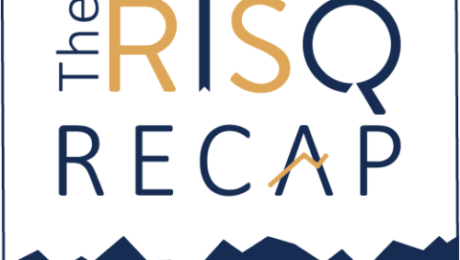Understanding the Quiet Hiring Trend
This article is from RISQ Consulting’s Zywave client portal, a resource available to all RISQ Consulting clients. Please contact your Benefits Consultant or Account Executive for more information or for help setting up your own login.

HR professionals have likely already heard about “quiet quitting,” where employees put no more effort into their jobs than necessary, and “quiet firing,” where employers or managers slowly pull back employee duties instead of outright firing them. Now, there’s another phrase gaining traction in workplaces: “quiet hiring.”
While the term for it is new, quiet hiring isn’t necessarily a new concept. Given the ongoing talent shortage and a looming recession, more companies are exploring this trend to fill jobs and address priorities. This article explores the quiet hiring trend, its benefits and ways employers can leverage the talent strategy.
What Is Quiet Hiring?
Quiet hiring is when companies upskill existing employees and move them to new roles to fit business needs. It’s proven to be an efficient, cost-effective way for employers to snag in-demand talent without going through traditional external hiring channels. Quiet hiring addresses an organization’s immediate needs while not technically doing any new hiring.
An organization may already quietly identify and reward current workers who consistently exceed expectations and objectives. But forward-thinking organizations use quiet hiring to identify their own peak performers and promote them to avoid relying on external hires for open key positions. It is also used to acquire new skills and capabilities without adding new employees.
About 80% of workers in the United States say they have been “quiet hired,” according to a recent Monster survey. Furthermore, 63% of workers view quiet hiring as an opportunity to learn new professional skills. Career advancement opportunities, in turn, are helping employers retain employees. Even though it might seem like an organization may gain the most from quiet hiring, employees can benefit from this latest trend by securing a raise or promotion or developing new skills. In this way, quiet hiring gives power back to employees who want to move forward in their careers and be rewarded for exemplary workplace performance. The quiet hiring strategy is gaining traction since it benefits both employers and employees.
How Can Employers Quiet Hire?
Whether they know it or not, many organizations already engage in quiet hiring. However, some are being deliberate about it. Savvy companies like Google are already leveraging quiet hiring as a core component of their recruitment strategy. It’s expected that other companies will follow and look within to fill open or critical roles.
In many cases, organizations are not necessarily doing hiring freezes or layoffs, but they may be slowing down their hiring. Despite changes in hiring paces, organizations still have financial goals and business objectives to meet. Quiet hiring is rising to the top as a way for employers to work best with the talent that they currently have and make adjustments as needed for organizational success.
Consider the following ways that organizations are hiring quietly:
- Focusing on internal talent mobility to address business priorities
- Moving employees—temporarily or permanently—into different roles or responsibilities
- Upskilling employees to meet organizational needs
- Leveraging short-term contractors or gig workers to bring in additional talent
Although internal mobility is often seen as a positive for workers, employers should keep in mind that some employees may interpret quiet hiring as being told that their regular job—what they were initially hired for—isn’t particularly important at the moment. This transparency is even more critical if an employee’s move is permanent and the old responsibilities are not backfilled.
Supervisors and managers can help address these concerns by clearly articulating why the new project or department is crucial to organizational success. Regardless of the decision to quiet hire, it’s vital for employers to ensure employees feel valued and part of something bigger. If these extra steps aren’t taken, current employees may feel undervalued and start looking for other career opportunities outside the organization.
Summary
Quiet hiring allows employers and managers to hone in on employees who are already going above and beyond in their daily work and proving they have what it takes to excel in a given role. As with any trend or strategy, quiet hiring will impact every workplace and workforce differently. Many organizations already take part in this strategy. However, some employers may need to look closer at their current workforce to better meet organizational goals and objectives.
Reach out to RISQ Consulting for guidance on the latest employee attraction and retention trends.
- Published in Blog
The RISQ RECAP:
January 23rd – January 27th, 2023
Each week, you’ll find specially curated news articles to keep you up to date on the ever-evolving world of insurance and risk management. The articles are divided out between items relevant to Property & Casualty, Employee Benefits/Human Resources, and Compliance. We’ve included brief summaries of each item as well as a link to the original articles.

PROPERTY & CASUALTY
Takeaways from Our Conversation on Cannabis Price Volatility in 2023
“Volatile cannabis flower prices in states with developed cannabis programs will impact insurance buying, while capacity will still be a challenge in 2023. Those were among the forecasts for the year from three subject matter experts. For our latest podcast we interviewed Roy Bingham, CEO of cannabis data provider BDSA, Jay Virdi, chief sales officer for Hub International’s cannabis specialty practice, and Charles Pyfrom, chief marketing officer at CannGen Insurance Services. Following are takeaways from that conversation. “I think the continuation of the price compression that we’ve seen in the last 12 months is going to be felt by everybody,” Bingham said. He said average retail prices in the big, mature markets in the Western U.S., such as Arizona, California, Colorado, Nevada, and Oregon declined 10% or more. “It’s all been driven by price reductions, and those markets, of course, are still about two-thirds of the national scene,” he said. “Prices are just decreasing at a rate, uh, that is greater than the incremental gain in units being sold.”” Full Article
– Insurance Journal

EMPLOYEE BENEFITS, HUMAN RESOURCES, & COMPLIANCE
What’s in Store for the Next Four Years? The EEOC’s Strategic Plan “In its draft EEOC Strategic Plan 2022- 2026 (released November 4, 2022), the agency sets forth 3 overarching goals and 15 identified performance measures for the purpose of achieving those goals.” Full Article – Akerman LLP
Wage Transparency Laws Create Labor Cert. Hurdles “Varying in scope, these laws will likely change the permanent labor certification, or PERM, process required for certain employer-sponsored foreign nationals and will require employers to consider their job advertisement strategy for PERM positions nationally.” Full Article – Morgan Lewis & Bockius LLP
An Employee “on Thin Ice” Cannot Insulate Herself with the FMLA “The Family and Medical Leave Act protects the use of qualifying leave for an employee’s (or their family member’s) serious health condition – but does not insulate the employee from all attendance and performance issues, as the U.S. Court of Appeals for the Eighth Circuit recently reminded employers.” Full Article – Shawe Rosenthal LLP
Oh Baby, Baby: New Laws Protecting Pregnant and Breastfeeding Employees “Effective December 29, 2022, the Providing Urgent Maternal Protections for Nursing Mothers Act, also known as The PUMP Act, expanded protections for breastfeeding mothers and, effective June 2023, the Pregnant Workers Fairness Act (PWFA) will provide new protections for pregnant employees.” Full Article – Bradley Arant Boult Cummings LLP
A Deeper Dive into FTC’s Proposed Non-Compete Rule “The Federal Trade Commission (FTC) proposed a new rule that, if made final, would (at least on its face) effectively prohibit non-compete agreements other than in very limited circumstances. The proposed rule, which would supersede all contrary state laws, is remarkable for its sweeping definition of “non-compete clauses” that fall within the ban.” Full Article – Jackson Lewis P.C
From Snowmageddon to Snowpocalypse: OSHA Highlights Potential Winter Weather Hazards “Employers must remember that weather-based hazards exist not only in the heat and humidity of summer, but also in the dead of winter. OSHA has reminded employers of their duties to plan, equip, and train their workers for jobs impacted by winter weather in an effort to “[p]revent injuries, illnesses, and fatalities during winter storms.” Full Article – Seyfarth Shaw LLP

STATE & INTERNATIONAL COMPLIANCE
In addition to the RISQ Review, RISQ Consulting also provides a resource that features changes and updates to State and International Compliance measures. We’ve included brief summaries of each item below, and also provided links to the original articles if you’d like to read further.
Signed, Sealed, Delivered: New Jersey Implements Long-Delayed Landmark WARN law “On January 10, 2023, Governor Philip D. Murphy signed into law S3162/ A4768, which makes the 2020 amendments to NJ WARN effective 90 days from his signature, irrespective of whether a State of Emergency still exists.” Full Article – Littler Mendelson P.C.NEW JERSEY
Challenges and Opportunities in California’s New Pay Transparency Rules “California’s new pay transparency rules generally fall into three disclosure categories: job-posting requirements, pay scale requests and pay data disclosures. For new hire job postings, employers with 15 or more employees must disclose the reasonably expected pay scale, both for salaried and hourly employees.” Full Article – Duane Morris LLPCALIFORNIA
New York Requires Employers to Provide Electronic Versions of Mandatory Workplace Postings “Before the amendment, the law required that certain legal notices be posted conspicuously in the workplace. Now, employers must also make digital versions of the physical notices available, either on the employer’s website or via email.” Full Article – Cooley LLPNEW YORK
Maryland Expands the Scope of Conduct that Constitutes Sexual Harassment in the Workplace “Recently, Maryland Senate Bill 450 (SB 450) went into effect, revising the definition of sexual harassment in the workplace by changing the standard of sexual harassment from “severe or pervasive” conduct to the “totality of the circumstances” in sexual harassment cases.” Full Article – Shulman RogersMARYLAND
Illinois Legislature Passes Paid Leave for All Workers Act “On January 10, 2023, the Illinois Legislature passed the Paid Leave for All Workers Act (“Act”), which Illinois Governor J.B. Pritzker has also announced his intention to sign. The Act will take effect on January 1, 2024, and it provides nearly all Illinois workers with a minimum of forty (40) hours, or a pro-rated number of hours, of paid leave during a designated 12-month period.” Full Article – Thompson Hine LLPILLINOIS
- Published in Blog
Combating Imposter Syndrome
This article is from RISQ Consulting’s Zywave client portal, a resource available to all RISQ Consulting clients. Please contact your Benefits Consultant or Account Executive for more information or for help setting up your own login.

Imposter syndrome is a feeling of self-doubt that affects how workers view their abilities and qualifications when they don’t think they belong or deserve their job. It can affect an employee’s work by impairing job performance, contributing to burnout and reducing overall job satisfaction.
In fact, according to the International Journal of Behavioral Science, around 70% of the population has experienced imposter syndrome at least once.
With an increase in remote work environments, imposter syndrome has worsened due to a lack of in-person interaction. Face-to-face interactions can provide feedback through body language, which employees lack when working from home. When working from home, workers can also become distracted by things such as pets and children. Furthermore, these distractions can increase stress and anxiety, contributing to self-critical feelings about job performance.
All of those factors can negatively impact your well-being as an employee. Consider these strategies to help combat imposter syndrome, including when working from home:
- Let negative thoughts come and go. Negative feelings towards yourself are common. To combat the anxiety associated with them, it can be helpful to recognize them and avoid giving them further thought. Avoid being too hard on yourself.
- Get together with co-workers. If there are in-person events at your workplace, consider attending them to interact face-to-face with co-workers. You could also consider scheduling a working lunch or post-work happy hour with a co-worker.
- Talk about your experience. Sharing about your experience with imposter syndrome can help both you and those you work with feel less alone. Share your advice with co-workers to help spread knowledge and awareness.
- Practice positive self-talk. Practicing affirmations and writing down the facts can weed out the false accusations in your head. Write down the positive ways you contribute to your workplace so you can recognize your accomplishments.
- Have self-compassion. Perfection is not possible. When you’re experiencing negative thoughts, it’s essential to be kind to yourself. It’s also important to recognize that you were hired for your role for a reason.
You don’t have to combat imposter syndrome alone. Working remotely can foster feelings of isolation, but imposter syndrome affects millions of workers each year; therefore, it’s important to know you’re not the only one affected. Knowing how to combat it can help you and those you work with.
Prioritizing Your Well-being
In recent years, there has been a shift to organizations allowing employees to work remotely. This remote work option has given employees more time to focus on their well-being. While remote work can help improve overall job satisfaction, it can also have some adverse effects. Some aspects of remote work can negatively impact your mental health and, as a result, affect your physical well-being and job performance.
According to recent research from Zippia:
- Almost half (40%) of remote workers say that struggling to unplug at the end of the workday is their biggest challenge.
- Half (50%) of remote workers feel lonely at least once per week.
Driven in part by this social isolation, remote employees have started to shift towards prioritizing their well-being. With the increase in employees working from home, there has started to be a more significant focus on using extra time that was previously for commuting on other nonwork-related tasks. Some of these activities include extra sleep, leisure activities and home projects.
As a result, focusing some attention on your well-being will improve not only your physical and mental state but also your work experience. To prioritize your well-being, consider trying some of these strategies while working remotely:
- Connect with co-workers. Connecting with others is important when working remotely to combat feelings of isolation. Make time to connect throughout the week by planning meet-ups such as post-work walks or lunches.
- Exercise for 30 minutes daily. Exercise can help boost your mood and improve your overall well-being. Some typical workouts include yoga, biking, walking and stretching.
- Schedule regular breaks. Take breaks throughout your day to help prevent daily burnout. Small breaks in your workday could include taking a short walk or making a snack.
- Create a designated work space. When working in a remote environment, it’s important to have a space designated for work. This space should be somewhere you feel productive, such as a desk. Spaces like your bedroom or couch are associated with relaxation, so they may not be the best locations to be productive during the day.
If you’re a remote or hybrid employee, consider trying some of these tips to help prioritize your physical and mental health.
Every workplace is different, so consider how prioritizing your well-being can fit into your schedule. You could also reach out to your manager or co-workers to discuss prioritizing your well-being.
- Published in Blog
6 Tips For Better Brain Health
This article is from RISQ Consulting’s Zywave client portal, a resource available to all RISQ Consulting clients. Please contact your Benefits Consultant or Account Executive for more information or for help setting up your own login.

A brief lapse in memory, such as misplacing your wallet or forgetting a birthday, is often associated with being overly busy or having an excessive amount of stress. In fact, memory loss is a common part of aging. What can be problematic is when the episodes of forgetfulness increase and intensify into a more severe problem, such as mild cognitive impairment or even Alzheimer’s disease.
This is why taking care of your brain health is essential. There are small daily efforts you can make to slow memory decline. Read on for six tips about taking care of your brain health.
-
Exercise Daily
Physically active people are less likely to experience a decline in their mental function, according to the Mayo Clinic. The increased blood flow to the brain during exercise aids the natural brain connections that occur during aging. A simple routine of 30 minutes of physical activity daily can help boost your brain health. Try choosing an activity that will increase your heart rate, such as hiking, playing tennis or biking.
-
Eat a Balanced Diet
A balanced diet not only helps physical health but cognitive functions as well. Try to incorporate foods high in monounsaturated fats, polyunsaturated fats and omega-3 fatty acids. These foods can include salmon, nuts and avocados, for example. It’s also important to avoid foods high in trans and saturated fats, such as processed foods and fatty cuts of beef.
-
Get a Good Night’s Sleep
Sleep plays a vital role in overall health, including brain health. To get a good night’s sleep, you should aim for seven to eight consecutive hours of rest per night. This gives the brain a chance to detoxify and relax after each day, which is critical for a healthy brain and memory.
A lack of sleep can be a detriment to your brain health. If you’re having trouble sleeping, it can be helpful to reach out to your doctor.
-
Participate in Social Activities
Regular social interactions can help decrease memory loss. This can especially be important if you live alone or work remotely. A simple way to incorporate social interaction into your daily life is to connect with loved ones such as family and friends. If you have time in your evenings, this could be a good opportunity to try a new hobby or class within your community.
-
Activate Your Brain
The more mentally stimulated you are, the better your brain’s overall function will be. To engage in mental stimulation, you can participate in activities such as reading, brain games, painting and puzzles. If you’re looking for where to start with brain-stimulating exercises, reach out to your doctor for recommended resources.
-
Receive Regular Check-ups
Certain health factors, such as artery and vein health, are critical to brain health and function. By going to regular check-ups, you’re able to get your blood pressure, blood sugar and cholesterol checked. Your doctor can tell you if your these and other numbers are in a healthy range. If not, they can provide care to help you get your numbers in a healthy range.
Conclusion
Brain health significantly impacts your memory and cognitive function. Practicing these six habits can positively impact your brain’s health. If you have further questions about how to better the health of your brain, reach out to your doctor for more information.
- Published in Blog
The RISQ RECAP:
January 16th – January 20th, 2023
Each week, you’ll find specially curated news articles to keep you up to date on the ever-evolving world of insurance and risk management. The articles are divided out between items relevant to Property & Casualty, Employee Benefits/Human Resources, and Compliance. We’ve included brief summaries of each item as well as a link to the original articles.

PROPERTY & CASUALTY
Fewer Companies Are Paying Ransoms to Hackers, Researchers Say
“Fewer companies that are infected with ransomware are coughing up extortion payments demanded by hackers, according to new research from Chainalysis Inc. In findings published on Thursday, the blockchain forensics firm estimated that ransom payments — which are almost always paid in cryptocurrency — fell to $456.8 million in 2022 from $765.6 million in 2021, a 40% drop. “That doesn’t mean attacks are down, or at least not as much as the drastic dropoff in payments would suggest,” according to the report. “Instead, we believe that much of the decline is due to victim organizations increasingly refusing to pay ransomware attackers.”” Full Article
– Insurance Journal

EMPLOYEE BENEFITS, HUMAN RESOURCES, & COMPLIANCE
Paid Leave for Any Reason Coming to Illinois “On January 10, 2023, the Illinois legislature passed the Paid Leave for All Workers (PLFAW) Act, making Illinois just the third state in the country (after Maine and Nevada) to require private employers to provide earned paid leave to employees to be used for any reason.” Full Article – Ogletree Deakins
Reviewing the Welfare Plan Rules Under the Consolidated Appropriations Act, 2021 “New requirements for maintaining an interactive tool for providing health plan participants with provider-specific information about the amount they will need to pay for services (and other useful information) apply, beginning in 2023.” Full Article – Ballard Spahr LLP
Fast-Approaching Deadlines for ACA Reporting and Similar State Reporting “Generally, reporting that relates to health coverage in one calendar year is due early in the following calendar year. With respect to health coverage in 2022, the ACA deadlines range from February 28 to March 31, 2023, and the state deadlines range from January 31, 2023 to April 30, 2023.” Full Article – Venable LLP
Looming Deadline for Pharmacy Reporting “CMS FAQs indicate that plan sponsors can delegate CAA reporting to their vendors, and reporting does not need to be consolidated with one entity. Note that self-funded plans will still retain liability for reporting, but in the case of fully insured plans, liability can be delegated to issuers in writing.” Full Article – Winston & Strawn LLP
Year-End Appropriations Legislation Contains Group Health Plan Provisions “The legislation provides funding to assist states in their enforcement of the CAA, 2021 requirement that health plans and insurers prepare comparative analyses of any nonquantitative treatment limitations on mental health or substance use disorder coverage. The legislation also eliminates the right of self-insured non-federal government health plans to opt out of [MHPAEA] compliance.” Full Article – Thomson Reuters/EBIA
We are FAMLI … Colorado Employers Must Withhold Premiums NOW for 2024 FAMLI Benefits “Premiums are set to 0.9% of the employee’s wages, with 0.45% paid by the employer and 0.45% paid by the employee. Colorado businesses must begin collecting premiums starting on January 1, 2023. If you are subject to the FAMLI Act and are about to run your first payroll for 2023, you must coordinate with your payroll processor to ensure deductions begin immediately.” Full Article – Holland & Hart

STATE & INTERNATIONAL COMPLIANCE
In addition to the RISQ Review, RISQ Consulting also provides a resource that features changes and updates to State and International Compliance measures. We’ve included brief summaries of each item below, and also provided links to the original articles if you’d like to read further.
CALIFORNIA
AB 2449’s Mandate for Implementation of Receiving and Resolving Americans with Disabilities Act (ADA) Requests for Reasonable Accommodations
“In addition to changes to rules for virtual attendance of public meetings under the Ralph M. Brown Act (Brown Act), AB 2449 also imposed a mandate on local legislative bodies within California to adopt procedures for receiving and swiftly resolving requests for reasonable accommodations for individuals with disabilities, consistent with federal law.” Full Article
– Reed Smith
MICHIGAN
Michigan Minimum Wage and Paid Leave Update: Agency Guidance and the Mothering Justice Appeal
“In Mothering Justice, the Court of Claims held that the state legislature violated the Michigan Constitution in 2018 when it enacted, and within the same legislative session amended, two ballot initiatives, one to raise the minimum wage and the other to require employers to provide paid sick leave.” Full Article
– Jackson Lewis P.C.
WASHINGTON
Washington State Issues Final Policy on Pay Transparency in Job Postings, Setting Most Stringent Requirements in the Country
“The law provides that employers must disclose in each posting for each job opening: (1) the wage scale or salary range, and (2) a general description of all benefits and other compensation to be offered.” Full Article
– Littler Mendelson
PENNSYLVANIA
Philadelphia Commuter Transit Benefits Coming Son
“Effective December 31, 2022, the Philadelphia, Pennsylvania Employer Commuter Transit Benefit Program requires covered employers to make available for all covered employees a mass transit and bicycle commuter benefits program.” Full Article
– Proskauer Rose
NORTH CAROLINA
North Carolina Noncompetes, What is Legal Consideration?
“While one-size-fits-all noncompetes, such as restricting an employee from generally working for a competitor, will not fly in North Carolina, including specific language prohibiting the employee from “performing similar work” or describing the employee’s job duties within the noncompete can strengthen its enforceability.” Full Article
– Parker Poe Adams & Bernstein
- Published in Blog
5 Alternatives To Unhealthy Coping Mechanisms
This article is from RISQ Consulting’s Zywave client portal, a resource available to all RISQ Consulting clients. Please contact your Benefits Consultant or Account Executive for more information or for help setting up your own login.

When times get tough, it can be instinct to look for a coping mechanism. Coping mechanisms can help people feel like they’re escaping reality by relieving stress or being able to distract their minds. While this is a normal feeling, it becomes a problem when one turns to unhealthy coping mechanisms, which can be harmful in the long run.
This article explores ways to turn unhealthy coping mechanisms into healthier alternatives.
Unhealthy Coping Mechanisms
There are typically four main reasons people turn to unhealthy or destructive behaviors: mental health, stress, isolation and neurobiology. Here are some of the most common unhealthy coping mechanisms:
- Oversleeping—Sleep is a common way that people try to escape. While sleep is good for your overall health, too much sleep can inhibit the amount of movement your body needs daily.
- Excessive drug or alcohol use—Substance misuse can be a dangerous coping mechanism as it can have serious long-term side effects such as health complications, addiction and death.
- Over- or under-eating—Over- or under-eating outside of the recommended guidance can cause health issues. Try to stay within the recommended daily intake guidance.
- Impulsive retail spending—Excessive shopping can lead to financial problems. Making small purchases over time can also lead to hoarding or family problems.
Alternatives to Unhealthy Coping Mechanisms
It’s normal to have feelings of wanting to escape from reality due to stress or anxiety. Healthy coping mechanisms can help address stress and anxieties in a positive way—and also develop into long-lasting habits.
Check out these healthier alternatives for coping with stress or other unpleasant emotions:
- Create task lists. Unhealthy coping mechanisms can prevent you from reaching your short- and long-term goals. Making a task list of personal goals can help you achieve the things you want and elevate your mood by physically seeing your accomplishments when they’re checked off the list.
- Talk about stress. Find someone willing to listen to you, such as a close friend, family member or mental health professional. Putting your feelings into words can help alleviate stress and feelings.
- Address negative feelings. Negativity is a normal part of life. Trying to avoid it is called avoidance behavior, which can result in reaching for unhealthy coping mechanisms.
- Learn your triggers. Knowing what you negatively respond to can help help you keep track of and be aware of how you react.
- Pick up a new hobby. For example, outlets such as painting or picking up running can be therapeutic. Incorporate a frequent time and space to practice your new hobby.
Practice Healthy Coping Mechanisms
Having negative or overwhelming emotions is normal. It’s important to consider using healthy coping mechanisms to help deal with stress. If you have an ongoing emotional problem, talk to your doctor or a mental health professional.
- Published in Blog
4 Attraction and Retention Trends to Monitor in 2023
This article is from RISQ Consulting’s Zywave client portal, a resource available to all RISQ Consulting clients. Please contact your Benefits Consultant or Account Executive for more information or for help setting up your own login.

The labor market was a roller coaster in 2022 and will undoubtedly continue to evolve this year. It remains to be seen how the employment market will level out. Still, it’s a safe bet that employers will be challenged as they compete for top talent. Labor metrics indicate that even though the market has slightly improved from last year, it’s still a tight labor market as numbers remain historically high. While most employers project an increase in salaries in 2023, many will look beyond pay alone to help attract and retain more employees.
While some companies have been taking monetary actions (e.g., compensation and benefits packages) to address attraction and retention challenges, many organizations also are looking at ways to optimize their offerings and enhance employee experience. As they compete for talent, many may take a total rewards approach to fulfill employees’ workplace desires. This article explores four attraction and retention trends to watch in 2023.
1. Redesigned Flexibility
Remote work exploded at the height of the pandemic as most organizations shifted to this flexible work model out of necessity. Nearly three years later, it’s still at the forefront. Along with remote working arrangements, employers are offering hybrid options, flexible scheduling or even four-day workweeks.
Employees want the flexibility to work when and where they want. Employers have an opportunity to deliver on those desires and win over more workers. It comes down to offering the flexibility they need in their work and personal lives. On the other hand, many employers are striving to bring employees back to the workplace based on business priorities, so it’s essential to balance those organizational goals with employee desires for workplace efforts to be successful and well-received. While workplace flexibility is not feasible for every industry, organization and role, employers can evaluate their own situations and consider ways to develop flexible arrangements. The goal is to focus on output and productivity rather than time spent online or in the workplace.
2. Mental Health Support
Between the pandemic, inflation and job duties, more employees feel burnt out or are battling mental health challenges. As such, organizations are expected to take more responsibility for workers’ mental health and help employees on a personal level.
More employers will be considering how to take a proactive approach to employee mental well-being and resilience. A survey from the employee wellness platform Gympass revealed that nearly half of employees (48%) say their well-being declined in 2022. In addition, 28% say they are miserable at work. Health experts predict that employees’ mental health will continue to decline amid economic uncertainty, which means the demand for mental health care will increase in 2023.
Employers can offer benefits, perks and wellness programs that account for mental well-being. To address burnout and other well-being challenges, many employers will offer or expand their employee assistance programs, behavioral health anti-stigma campaigns and training for recognizing employee and peer behavioral health issues. Employers are poised to offer the education and support that today’s workers need and are looking for.
3. Learning and Development Opportunities
Learning and developing efforts have been on the rise in recent years. Not only are workers looking for professional growth opportunities at an employer, but many organizations are upskilling or reskilling workers, as it’s often less expensive to reskill a current employee than hire a new one. On the flip side, employees who receive learning and development opportunities are more likely to stay with the company and grow into different roles. Therefore, learning and development initiatives prove to be a win-win situation for employers and employees.
As employers go head-to-head in the competitive race for talent in 2023, upskilling their current workforces could be a solution to finding workers for their in-demand roles. Upskilling is when employers provide employees the opportunity to learn new skills to better their current work performance while also prepping them for the projected needs of the company. When upskilling employees, employers are investing not only in workers but also in the company’s longevity and development. Furthermore, organizations are prioritizing internal mobility to address skills gaps and strengthen employee retention.
4. Increased Focus on Belonging
Belonging is a critical component of company culture. At work, belonging is the experience of employees being wholly accepted and included by those around them. While belonging doesn’t necessarily come with a price tag, employers can invest efforts and resources into ensuring their workplaces are inclusive, collaborative and connected. Employees are looking for a work environment that’s authentic and accepting. A focus on belonging can play a crucial role in improving workplace culture and, in turn, improving employee attraction and retention.
Many workplace factors can impact employees’ sense of belonging, including (but not limited to) company culture, benefits offerings, communication methods, learning and development resources and mental health support. Any day-to-day interactions among co-workers and managers or companywide initiatives may impact workplace culture and the overall employee experience. When an organization develops a solid and positive employer brand as an inclusive and supportive workplace, it may easily attract new talent eager to join and contribute to the company culture. Employers can elevate employee experiences by creating workplaces where employees feel they belong and can be their authentic selves.
Summary
Employers can get ahead of the game in 2023 by monitoring the trends shaping the ever-evolving labor market and driving current and prospective employees’ needs and wants. While attraction and retention challenges are likely to continue this year, these trends demonstrate ways employers can elevate and strengthen their talent strategies to win and keep more workers.
Reach out to RISQ Consulting for more guidance on these topics and other employee attraction and retention trends.
- Published in Blog
The RISQ RECAP:
January 9th – January 13th, 2022
Each week, you’ll find specially curated news articles to keep you up to date on the ever-evolving world of insurance and risk management. The articles are divided out between items relevant to Property & Casualty, Employee Benefits/Human Resources, and Compliance. We’ve included brief summaries of each item as well as a link to the original articles.

PROPERTY & CASUALTY
January Renewals See Hardest Property Catastrophe Reinsurance Rates in Generation
“A convergence of global events has led to the hardest property-catastrophe reinsurance market in a generation and a “complex,” “grueling” and “late” January renewal season, which went down to the wire, according to reports issued by brokers Gallagher and Howden Re.” Full Article
– Insurance Journal

EMPLOYEE BENEFITS, HUMAN RESOURCES, & COMPLIANCE
Understanding the Difference Between Federal OSHA and State Plans “Employers need to identify whether their worksites fall under the jurisdiction of OSHA, a State Plan, or a Hybrid Federal- State Plan.” Full Article – Nelson Mullins Riley & Scarborough
Simple Possession Pardons Can Complicate Employment Background Checks “On October 6, 2022, President Biden issued a blanket pardon to all citizens and lawful permanent residents convicted of simple possession of marijuana under the federal Controlled Substances Act.” Full Article – Duane Morris
Court Allows GINA Claims to Proceed Against Employer Wellness Program “In Glenn Williams et al. v. City of Chicago, an Illinois federal district court judge has given the green light for some city employees to proceed with their suit against their employer based on violations of the Genetic Information Nondiscrimination Act (GINA).” Full Article – Hall Benefits Law
Trends and Issues Which Can Affect Workers’ Compensation Coverage for Construction Companies “Recent trends in workers’ compensation coverage suggest that the number of claims are likely to continue to increase, specifically for high-risk industries, like the construction industry. This article explores multiple trends and issues which are likely to impact workers’ compensation insurance for construction companies.” Full Article – Saxe Doernberger & Vita
How Should Employers Revise Their Releases, Separation Agreements, and Settlement Agreements in Light of the Speak Out Act? “The statute limits or prohibits the enforcement of confidentiality or non-disparagement provisions in cases of sexual harassment or assault for such agreements that were entered into “before the dispute arises.” The legislative history suggests that a “dispute arises” once an allegation of sexual assault and/or sexual harassment is made.” Full Article – Littler Mendelson
Sexual Misconduct Investigations: Why a Trauma-Informed and Culturally Sensitive Approach Works ““Following the viral #MeToo movement, which gained significant attention from 2017, a series of widespread and high-profile sexual misconduct allegations came to light across industries and corporations. Globally, with the increased media scrutiny, regulators, legislators and companies paid attention. But was that focus short-lived and have organizations implemented an adequate framework to effectively deal with sexual misconduct allegations?” Full Article – Ropes & Gray

STATE & INTERNATIONAL COMPLIANCE
In addition to the RISQ Review, RISQ Consulting also provides a resource that features changes and updates to State and International Compliance measures. We’ve included brief summaries of each item below, and also provided links to the original articles if you’d like to read further.
CALIFORNIA
AB 2449’s Mandate for Implementation of Receiving and Resolving Americans with Disabilities Act (ADA) Requests for Reasonable Accommodations
“In addition to changes to rules for virtual attendance of public meetings under the Ralph M. Brown Act (Brown Act), AB 2449 also imposed a mandate on local legislative bodies within California to adopt procedures for receiving and swiftly resolving requests for reasonable accommodations for individuals with disabilities, consistent with federal law.” Full Article
– Reed Smith
MICHIGAN
Michigan Minimum Wage and Paid Leave Update: Agency Guidance and the Mothering Justice Appeal
“In Mothering Justice, the Court of Claims held that the state legislature violated the Michigan Constitution in 2018 when it enacted, and within the same legislative session amended, two ballot initiatives, one to raise the minimum wage and the other to require employers to provide paid sick leave.” Full Article
– Jackson Lewis P.C.
WASHINGTON
Washington State Issues Final Policy on Pay Transparency in Job Postings, Setting Most Stringent Requirements in the Country
“The law provides that employers must disclose in each posting for each job opening: (1) the wage scale or salary range, and (2) a general description of all benefits and other compensation to be offered.” Full Article
– Littler Mendelson
PENNSYLVANIA
Philadelphia Commuter Transit Benefits Coming Son
“Effective December 31, 2022, the Philadelphia, Pennsylvania Employer Commuter Transit Benefit Program requires covered employers to make available for all covered employees a mass transit and bicycle commuter benefits program.” Full Article
– Proskauer Rose
NORTH CAROLINA
North Carolina Noncompetes, What is Legal Consideration?
“While one-size-fits-all noncompetes, such as restricting an employee from generally working for a competitor, will not fly in North Carolina, including specific language prohibiting the employee from “performing similar work” or describing the employee’s job duties within the noncompete can strengthen its enforceability.” Full Article
– Parker Poe Adams & Bernstein
- Published in Blog
Monitoring Snow Loads to Protect Structures
This article is from RISQ Consulting’s Zywave client portal, a resource available to all RISQ Consulting clients. Please contact your Benefits Consultant or Account Executive for more information or for help setting up your own login.

Major snow events can impact the integrity of a structure, making it imperative for commercial property owners to understand their building’s characteristics and structural system prior to the start of the snow season. Having familiarity with the building structure can help owners determine if any changes occurred during a major snow event and if repairs are necessary. This article discusses key building information owners should be aware of, what to look for during a pre-season inspection and warning signs of a building in duress.
Key Building Information
A commercial property owner’s knowledge of their building could be the difference between getting through a major snow event safely or experiencing structural failure. Property owners should know the following regarding the current condition of the structure:
- Applicable building codes
- Design snow load
- Structural framing system
- Thermal properties
- Renovation history
Pre-season Inspection
A proper commercial building inspection can reveal the actual condition of a property and give owners the opportunity to fix any problems before the snow season begins. To mitigate damage and identify any potential issues, commercial property owners should:
- Perform a detailed inspection. Check for cracks, split seams, buckling, loose parts, staining, mold and rot while inspecting:
- Surface membranes
- Roof vents
- Flashing
- Field tears
- Gutters
- Drainage pipes
- Clean debris. Ensure the roof is clear of debris, including fallen branches, leaves and garbage. Debris can prevent water from draining, allowing snow to buildup and cause water damage or add weight to the structure.
- Look for pooling water. Keep an eye out for areas where water pools, as this could be an indication of a clogged drain or slow-draining line.
- Check the flashing. Inspect the flashing—the thin material used to direct water away from certain areas on the roof—before winter for cracks or crevices that would allow water to enter.
- Inspect the downspouts. Ensure downspouts are properly attached to the gutters, clear of debris and that their termination bars are sealed.
While these can all be inspected regularly by the owner or an employee, utilizing a certified roof inspector who knows what to look for can help ensure the roof is in good condition before any major snow events occur.
Warning Signs of Duress
Roof decks or framing that is under duress from snow loads typically display warning signs. Commercial property owners should watch for the following signs in wood, metal and steel constructed buildings:
- Ceiling tiles or boards that are sagging or falling out of the ceiling grid
- Sprinkler lines and sprinkler heads that are sagging or deflecting below suspended ceilings
- Roof members, such as metal decking or plywood sheathing, that are sagging
- Doors or windows that no longer open or close
- Wood members that are cracked or split
- Walls or masonry that are cracked
- Truss bottom chords or web members that are bowing
- Popping, cracking and creaking noises
If any of these warning signs are observed, the building should be promptly evacuated, and a detailed structural inspection should be conducted by a qualified professional.
Conclusion
Major snow events can cause a lot of damage to a commercial structure, especially if it hasn’t been properly inspected and maintained. Therefore, commercial property owners should ensure that their building is prepared for winter weather by inspecting the structure and making any necessary repairs. For more information, contact us today.
- Published in Blog








